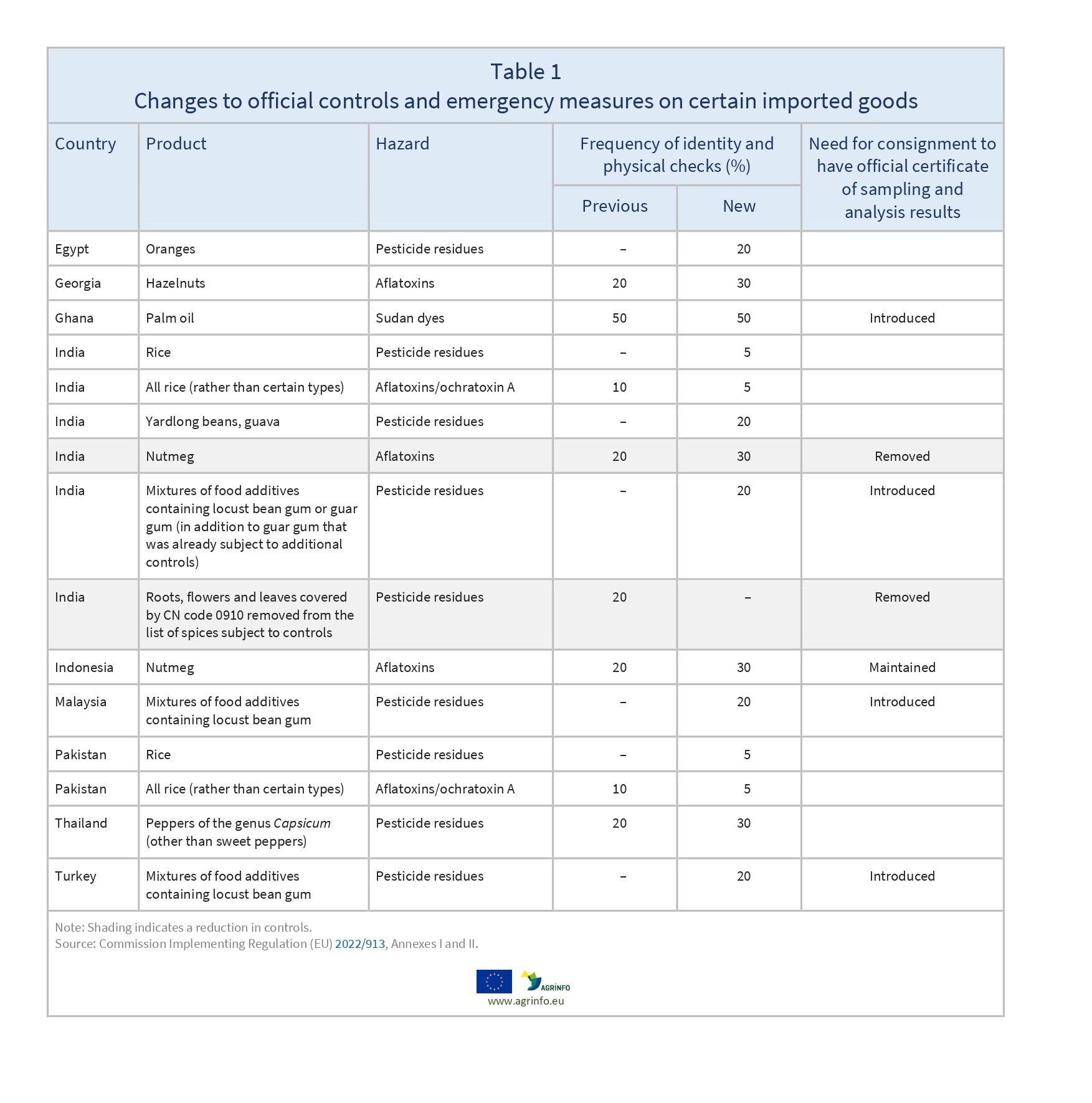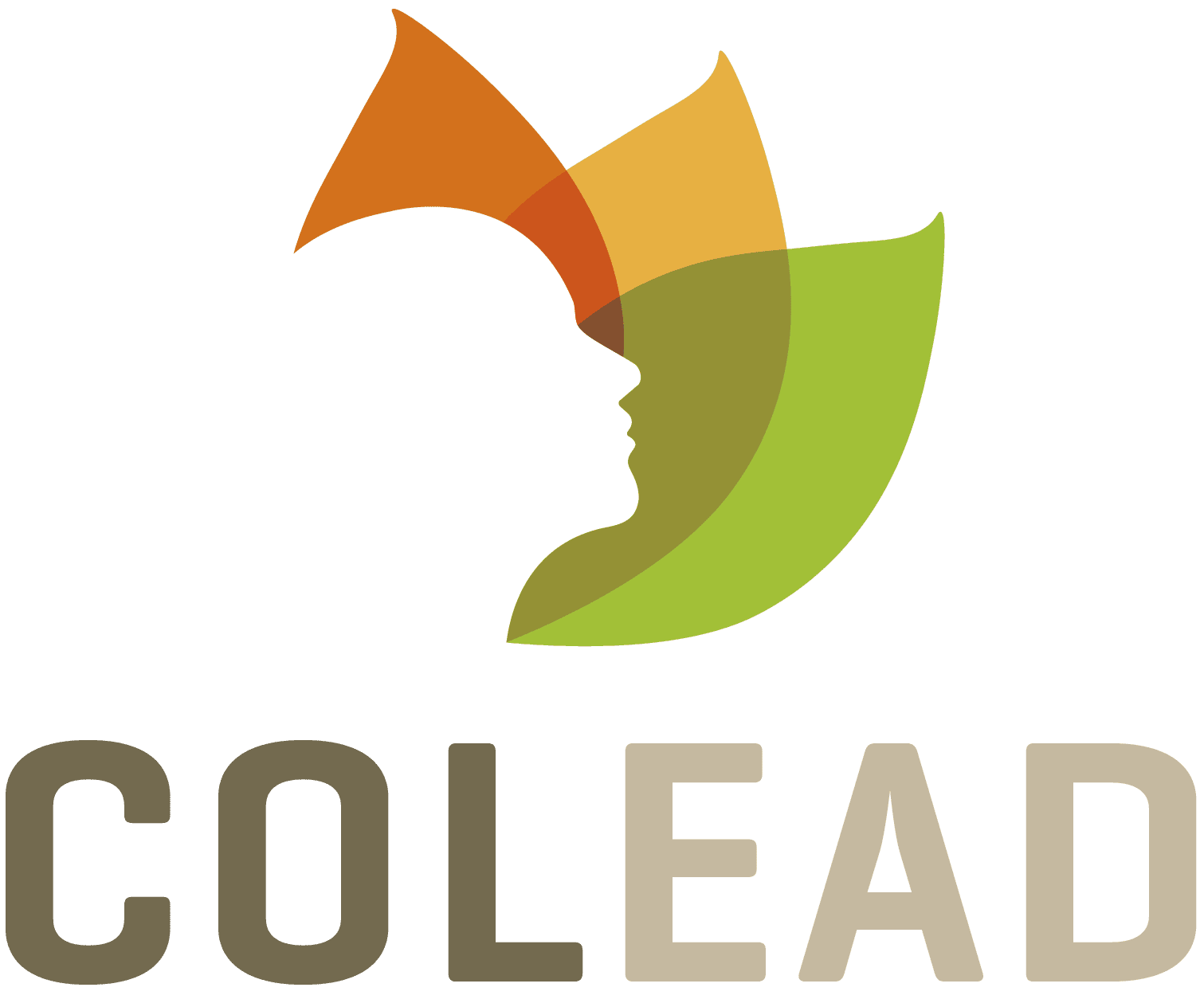Changes to official controls and emergency measures on certain imported goods
Published by AGRINFO on
European Commission increases official controls for certain products from Egypt, Georgia, Ghana, India, Indonesia, Malaysia, Pakistan, Thailand and Turkey
Commission Implementing Regulation (EU) 2022/913 of 30 May 2022 amending Implementing Regulation (EU) 2019/1793 on the temporary increase of official controls and emergency measures governing the entry into the Union of certain goods from certain third countries implementing Regulations (EU) 2017/625 and (EC) No 178/2002 of the European Parliament and of the Council
Update
The European Commission has reviewed the products for which it temporarily demands increased controls and emergency measures, and has introduced new controls for certain products from Egypt, Georgia, Ghana, India, Indonesia, Malaysia, Pakistan, Thailand and Turkey.
Impacted Products
beans, food additives, guava, hazelnuts, nutmeg, oranges, palm oil, peppers, rice
What is changing?
On 30 May 2022, the EU published Commission Implementing Regulation (EU) 2022/913 updating the list of products and their origins that are considered to require more frequent official controls by Member State authorities due to the risk of contamination (e.g. from mycotoxins, pesticide residues or microbiological contamination).
For certain products, this means additional physical checks at the border. For others, there is an additional requirement to provide certificates demonstrating that the necessary sampling and controls have been carried out prior to export. Egypt, Georgia, Ghana, India, Indonesia, Malaysia, Pakistan, Thailand and Turkey face additional controls for certain products as a result of this Regulation (see Table 1).
For more specific information on the products concerned (e.g. the relevant customs codes) and a complete list of all products/ origins subject to increased frequency of controls, see the consolidated legislation (updated 3 July 2022).
Why?
EU Member State authorities regularly perform official controls on imported foods. New information related to risks to human health and non-compliance with EU legislation are notified to the Rapid Alert System for Food and Feed (RASFF). These notifications are regularly reviewed (normally every 6 months). Where these notifications indicate a serious direct or indirect risk to human health deriving from food or feed, the Commission, in consultation with the Member States, may decide to increase controls. Where risks have decreased (e.g. as a result of action taken by third countries), the increased controls may be relaxed or removed entirely.
Timeline
Commission Implementing Regulation (EU) 2022/913 was published on 30 May and entered into force on 19 June 2022.
What are the major implications for exporting countries?
Exporters of the following products from the countries indicated must ensure that any consignment dispatched after 19 June 2022 must be accompanied by the results of sampling and analyses, and the official certificate provided by their competent authorities:
- Ghana: palm oil
- India: mixtures of food additives containing locust bean gum or guar gum
- Malaysia and Turkey: mixtures of food additives containing locust bean gum
Recommended Actions
Exporters should regularly monitor RASFF alerts, where possible investigate the source of non-compliance, and take corrective actions in the supply chain that minimise the risk of further alerts and increased controls. Once the frequency of controls has been increased, it can take a long time before the normal level of controls is reinstated.
Background
Regulation (EU) 2017/625 is the basic act organising official controls to ensure the application of EU food and feed law, and rules on animal health and welfare, plant health and plant protection products, both for EU production and for imported products into the EU. Article 47(d) permits the adoption of a temporary increase in official controls at border control posts.
Implementing Regulation (EU) 2019/1793 lays down the list of food and feed of non-animal origin subject to the temporary increase of official controls, and the rules for these controls. The list is updated regularly.
Sources
Commission Implementing Regulation (EU) 2022/913
Tables & Figures
 .
.


